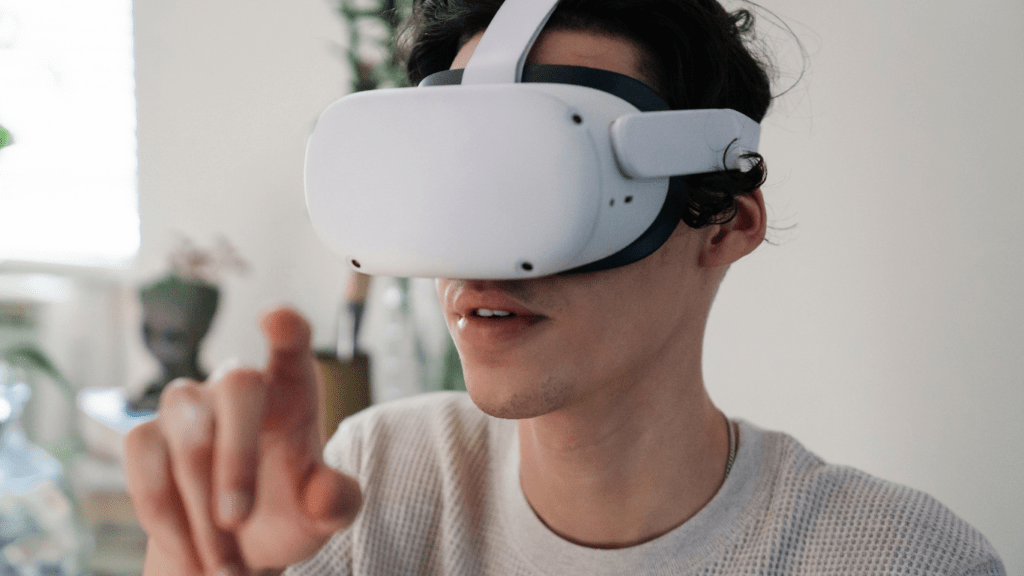In today’s fast-paced world, prioritizing mental health has never been more crucial. As someone who values holistic well-being, I’ve delved into the realm of innovative solutions that are reshaping the landscape of mental health care. From cutting-edge digital platforms to mindfulness applications, the intersection of technology and mental wellness is paving the way for accessible and effective interventions.
Exploring these innovative approaches firsthand, I’ve witnessed the transformative power they hold in promoting mental resilience and emotional balance. Embracing a proactive mindset towards mental health, I’ve uncovered a plethora of tools and resources that not only support individuals in their mental health journey but also foster a culture of openness and destigmatization surrounding mental well-being. Join me as we navigate through the realm of innovative solutions aimed at enhancing mental health outcomes for all.
Exploring Innovative Solutions for Better Mental Health
Delving into innovative solutions for better mental health, I aim to shed light on cutting-edge approaches that are revolutionizing mental health care and improving overall well-being. In a rapidly evolving world, it is crucial to leverage modern advancements to enhance mental resilience and foster emotional stability. Let’s delve into some groundbreaking techniques that are shaping the landscape of mental health support.
Harnessing the Power of Teletherapy
Teletherapy, also known as online therapy or telehealth counseling, is a virtual platform that connects individuals with mental health professionals through video calls, messaging, or phone sessions. This innovative approach offers convenience, accessibility, and flexibility for those seeking therapy. With teletherapy, individuals can receive support from the comfort of their homes, eliminating barriers such as transportation issues or geographical constraints. It’s a valuable tool that has transformed the traditional therapy model, making mental health care more accessible to a broader audience.
Integrating Artificial Intelligence in Mental Health Apps
Artificial Intelligence (AI) is playing a significant role in revolutionizing mental health apps by providing personalized and data-driven support to users. These AI-powered apps can track mood patterns, provide coping mechanisms, offer emotional support through chatbots, and even detect potential mental health concerns early on. By leveraging AI technology, individuals can receive tailored recommendations and interventions that cater to their unique needs, enhancing the overall effectiveness of mental health support.
Embracing Mindfulness and Meditation Practices
Mindfulness and meditation practices have gained widespread recognition for their role in promoting mental well-being and reducing stress. Incorporating these practices into daily routines can help individuals cultivate a sense of inner peace, improve focus and concentration, and manage anxiety and depression symptoms. With the rise of virtual mindfulness apps and online meditation platforms, accessing guided sessions and relaxation techniques has never been easier. Embracing mindfulness and meditation can be a powerful tool in enhancing mental health outcomes and fostering emotional balance.
Utilizing Virtual Reality Exposure Therapy
Virtual Reality Exposure Therapy (VRET) is a cutting-edge technique that uses immersive virtual environments to simulate real-life scenarios and help individuals confront their fears and anxieties in a controlled setting. This innovative approach is particularly effective in treating phobias, PTSD, and anxiety disorders by gradually exposing individuals to fear-inducing stimuli in a safe and controlled manner. By harnessing the power of virtual reality technology, therapists can create customized exposure scenarios tailored to each individual’s specific needs, making VRET a promising solution for improving mental health outcomes.
Leveraging Peer Support Networks
Peer support networks play a crucial role in providing individuals with a sense of community, understanding, and validation in their mental health journey. These networks connect individuals with shared experiences and challenges, creating a supportive environment where individuals can exchange insights, offer encouragement, and foster a sense of belonging. By leveraging peer support networks, individuals can feel empowered, validated, and less alone in their struggles, ultimately contributing to improved mental well-being and resilience.
In the ever-evolving landscape of mental health care, exploring innovative solutions is key to promoting positive outcomes and empowering individuals on their mental health journey. By embracing cutting-edge approaches like teletherapy, AI-powered apps, mindfulness practices, virtual reality therapy, and peer support networks, individuals can access comprehensive support tailored to their unique needs, fostering emotional balance and resilience in the face of life’s challenges.
Technological Advancements in Mental Health Care
In the realm of mental health care, technological advancements play a pivotal role in transforming the landscape. From AI-powered therapy platforms to virtual reality solutions, these innovations offer new avenues for delivering personalized and effective care to individuals seeking support for their mental well-being.
- AI-Powered Therapy Platforms
AI-powered therapy platforms harness the capabilities of artificial intelligence to provide users with accessible and personalized mental health support. These platforms utilize algorithms to analyze user data, offer tailored therapeutic interventions, and monitor progress over time. By leveraging AI technologies, individuals can engage in therapy sessions at their convenience, receive real-time feedback, and access evidence-based interventions, enhancing the efficacy and accessibility of mental health care.
- Virtual Reality for Exposure Therapy
Virtual reality (VR) has revolutionized exposure therapy by immersing individuals in simulated environments to confront and overcome their fears and anxieties. Through VR exposure therapy, individuals can gradually expose themselves to stressors in a controlled and safe setting, allowing for desensitization and emotional regulation. This technology enables mental health professionals to create customized scenarios that replicate real-life situations, providing a valuable tool for treating phobias, PTSD, and anxiety disorders. By integrating virtual reality into exposure therapy, individuals can experience realistic yet manageable challenges to build resilience and mitigate psychological distress.
Integrating Mindfulness and Meditation Practices
Exploring innovative solutions for better mental health involves integrating mindfulness and meditation practices. These practices offer valuable tools for individuals seeking to enhance their emotional well-being and mental resilience. Mindfulness, rooted in ancient contemplative traditions, focuses on present-moment awareness without judgment. It involves paying attention to thoughts, sensations, and emotions, fostering self-awareness and emotional regulation.
Meditation, another powerful practice, encompasses a wide range of techniques aimed at cultivating a calm and stable mind. From focused breathing exercises to loving-kindness meditation, these practices promote relaxation, reduce stress, and improve overall mental clarity. By incorporating mindfulness and meditation into daily routines, individuals can effectively manage anxiety, depression, and other mental health challenges.
Moreover, studies have shown that regular practice of mindfulness and meditation can lead to long-term improvements in mental health outcomes. Research indicates that these practices can reduce symptoms of anxiety, depression, and even chronic pain. By integrating mindfulness and meditation practices into mental health care, individuals can develop skills to cope with stress, regulate emotions, and improve overall psychological well-being.
In essence, integrating mindfulness and meditation practices into mental health initiatives provides individuals with holistic approaches to self-care and emotional wellness, complementing existing therapeutic interventions and technological solutions. By cultivating mindfulness and incorporating meditation into daily life, individuals can embark on a transformative journey towards better mental health and emotional balance.
Leveraging Wearable Devices for Mental Health Monitoring
Exploring cutting-edge technologies that aid mental health monitoring, wearable devices play a pivotal role in providing continuous insight into individuals’ well-being. These devices, ranging from smartwatches to fitness trackers, offer real-time data on various health metrics, enabling personalized and proactive mental health management.
Incorporating wearable devices facilitates the seamless tracking of key indicators such as heart rate variability, sleep patterns, physical activity levels, and stress responses. By analyzing these data points, individuals and healthcare providers can gain valuable insights into the individual’s mental and emotional states, allowing for early intervention and tailored support.
The integration of wearable devices in mental health care empowers individuals to take an active role in monitoring their well-being and enhances the efficacy of treatment plans. With the ability to detect subtle changes in physiological parameters, these devices enable timely adjustments to self-care routines, therapy sessions, and medication plans, promoting continuous progress towards improved mental health outcomes.
Moreover, wearable devices offer a convenient and unobtrusive method of monitoring mental health, fitting seamlessly into individuals’ daily lives. By leveraging the data collected from these devices, healthcare professionals can provide more personalized and data-driven care, leading to better treatment outcomes and enhanced overall well-being.
The utilization of wearable devices for mental health monitoring represents a significant advancement in the field, offering individuals greater control over their mental wellness and facilitating proactive interventions to support emotional resilience and long-term mental health.
Future Potential of Telehealth Services
Building on the transformative landscape of mental health solutions, telehealth services stand out as a pivotal advancement with substantial future potential. Telehealth services leverage technology to facilitate remote access to mental health professionals, enabling individuals to receive support and treatment conveniently. These services play a crucial role in overcoming barriers to traditional in-person therapy, such as geographical constraints and limited availability of mental health providers.
Through telehealth services, individuals can access therapy sessions from the comfort of their homes, promoting convenience and accessibility. This remote delivery of mental health care not only enhances the overall patient experience but also fosters a sense of privacy and reduces stigmas associated with seeking help for mental health concerns. Moreover, telehealth services cater to diverse populations, including individuals in rural areas, those with mobility challenges, and individuals with hectic schedules, ensuring equitable access to mental health care for all.
The integration of telehealth services with innovative tools like AI-powered algorithms and virtual reality platforms further expands the scope of mental health interventions. AI algorithms analyze user data to personalize treatment plans and provide timely interventions based on individual needs. Virtual reality platforms offer immersive environments for exposure therapy, allowing individuals to confront and overcome their fears in a controlled and supportive setting.
As telehealth services continue to evolve, they hold immense promise in revolutionizing mental health care delivery. The future integration of telehealth with emerging technologies like wearable devices and predictive analytics will offer enhanced monitoring capabilities and proactive intervention strategies. This integration will empower individuals to take charge of their mental well-being proactively, leading to improved treatment outcomes and overall mental health resilience.
The future potential of telehealth services in the field of mental health signifies a shift towards more accessible, personalized, and effective care delivery. Embracing these innovative solutions not only enhances the quality of mental health services but also paves the way for a more inclusive and supportive mental health ecosystem.




 Gracenie Stamperon
is a dedicated wellness enthusiast and content creator for My Healthy Living and Strategies, a platform focused on promoting holistic health, balanced living, and personal well-being. Gracenie’s passion for healthy living stems from her lifelong interest in nutrition, fitness, and mindfulness. With a background in health education, she brings a wealth of knowledge and practical strategies to help individuals achieve their wellness goals.
Gracenie Stamperon
is a dedicated wellness enthusiast and content creator for My Healthy Living and Strategies, a platform focused on promoting holistic health, balanced living, and personal well-being. Gracenie’s passion for healthy living stems from her lifelong interest in nutrition, fitness, and mindfulness. With a background in health education, she brings a wealth of knowledge and practical strategies to help individuals achieve their wellness goals.